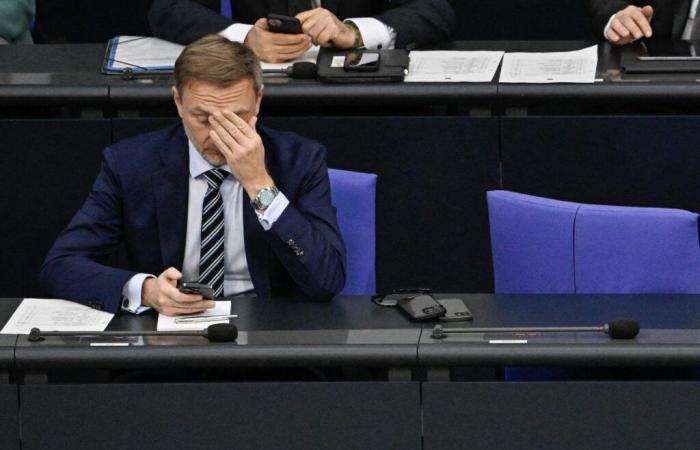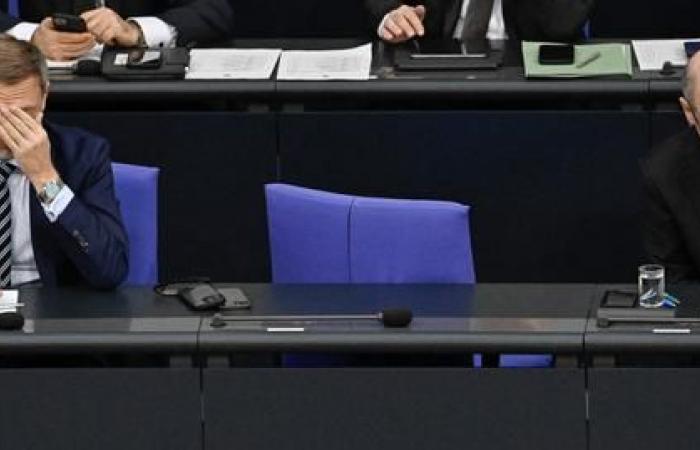Olaf Scholz brought together the tenors of his coalition in the hope of preventing the German government from collapsing “at the worst time”. He finally had to resolve to part ways with one of the key members of the executive. The German Chancellor has dismissed his Finance Minister Christian Lindner (FDP, liberal right), a spokesperson announced on the evening of Wednesday, November 6.
This dismissal logically caused the departure of the FDP from the government and therefore the end of the current government coalition, which no longer has a majority in the Chamber of Deputies. Unless the chancellor tries to remain at the head of a minority government.
At a press conference, Olaf Scholz announced that he would seek a vote of confidence on January 15. New elections could take place by March.
Breakdown of trust
Coalition ruptures are very rare in Germany and Olaf Scholz initially hoped to lead his until the next legislative elections scheduled for September 28, 2025. But he took the decision to dismiss while Christian Lindner, president of the FDP, proposed, according to several media, to call early legislative elections in early 2025. A way of responding to the blockages on the economic policy to be carried out between his movement, the social democrats and the environmentalists, all members of the tripartite government coalition. “Too often he betrayed my trust”declared the chancellor.
The fate of the coalition made up of Mr. Scholz's social democrats (SPD), environmentalists and liberals (FDP) hung by a thread after months of quarrels over the economic and budgetary course to give to Germany , on the verge of recession. It was to remedy this that the leaders of the majority met at the chancellery where they had to spend part of the night.
The vice-chancellor and green economy minister, Robert Habeck, had previously urged all partners to come to their senses, emphasizing that with Trump's return to power, “the government must be fully capable of acting”. “This is the worst time for the government to fail”he estimated at the start of the week.
Read also | Article reserved for our subscribers US presidential election: Germany fears it has a lot to lose with Donald Trump's victory
Read later
“Autumn of decisions”
The divide between the coalition parties had become more evident in recent days, with the leak of a document from Finance Minister Christian Lindner, whose proposals for a “economic turning point” Liberals go against the centrist line hitherto followed by the government.
Disagreements focus on solutions to revive Europe's largest economy. Olaf Scholz's social democrats are trying to preserve their social priorities; Robert Habeck's Greens are pushing to fight climate change despite the costs of the transition while the liberals are stubbornly focused on respecting Germany's drastic constitutional limits on budget deficits and debt.
The World Application
The Morning of the World
Every morning, find our selection of 20 articles not to be missed
Download the app
Christian Lindner also called for the end of a “solidarity tax” established in 1991, initially to finance the cost of the Reunification of Germany, and the abandonment by his country of its climate objectives which were more ambitious than those set by the European Union. He described the current period as“autumn of decisions”suggesting that his party could leave the coalition if it did not win its case.
Read also | Article reserved for our subscribers In Germany, the deterioration of the economy puts Olaf Scholz's coalition to the test
Read later
Before the meeting, analyst Carsten Brzeski of ING bank estimated that “The German government has just entered the new phase of a slow-burning political crisis that could be the last step before the final collapse of the governing coalition”.







